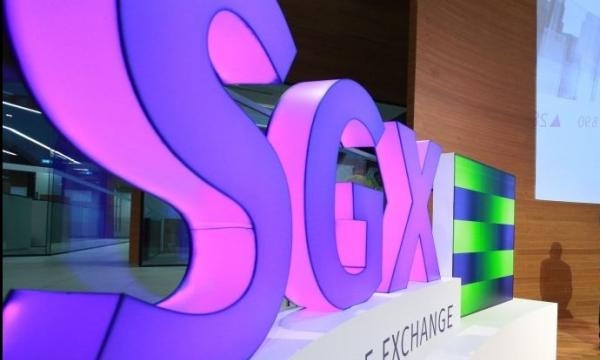
Reduced MSCI offerings could slam SGX's FY2022 earnings: analyst
Futures movement may move to its rival in Hong Kong.
Singapore Exchange has made a dent on its medium-term thesis after it announced that its license agreement for MSCI ex-Singapore products will expire in February 2021, where its impact to the bourse’s earnings may likely spill over to 2022, according to an analyst note by DBS Group Research.
The report noted that Ex-MSCI Singapore products contributed 15% of equity derivatives contracts volume and 12% of total derivatives contracts volumes.
Amongst these volumes, MSCI Taiwan contracts, as one of SGX’s top four traded equity contracts, contributed 12% and 10% of equity and total derivatives contracts volumes, respectively. MSCI Singapore products contributed another 5% to total derivatives contracts
volumes.
“According to management, there is a ‘potential 10-15% impact on FY2021 NPAT’ based on its estimates, assuming that there will be zero trades in all other MSCI products from July 2020,” said Rui Wen Lim, analyst as DBS Group Research. “We believe that FY2022 is likely to be the worst hit.”
However, Lim added that there could be a smaller-than-expected decline in FY2021 as the management has stressed that its assessment is conservative at this point, as some contracts are still likely to trade between July 2020 and February 2021. It also excludes cost and technology expenses associated with the contracts.
“We have cut FY21-22F earnings by 11-19% but left FY20F estimates unchanged. There may be potential upside in FY21F estimates should trading continue from July 2020 to February 2021 in the interim as investors mitigate the changes,” Lim stated.
Competition intensifies
Meanwhile, Hong Kong Exchanges and Clearing (HKEX) has entered into a major licensing agreement with MSCI, introducing 37 futures and options contracts.
“We note that on top of plans to offer MSCI Taiwan products, MSCI Singapore contracts are in the plans as they are not exclusive to SGX and there might be some movement in volumes from SGX to HKEX,” Lee warned.
Further, he added that HKEX announced in March 2019 that it was planning to launch futures contracts, which may compete with SGX’s FTSE China A50 Index Futures. The latter accounts for c.40% of SGX’s total derivatives volume.
Such a move will likely bolster HKEX’s ambitions in the derivatives space, an area it has been keen to grow in. “The reduction of licence agreement with MSCI has derailed SGX’s medium-term thesis in the interim, which has been powered by derivatives’ growth,” Lee noted.
As a result, SGX continues to build on its multi-asset solutions as it believes margin efficiencies across various asset classes will continue to allow it to seek growth in the derivatives business, Lee said. The local bourse stated that they will continue to engage with its stakeholders to manage their open interest as SGX gradually discontinues the relevant MSCI products.
“In our view, it could be difficult for SGX to recreate similar products to its existing MSCI offerings. However, SGX has reiterated its continued push to broaden and deepen Asia coverage by developing more derivative products on its own or seeking collaboration with other partners,” Lee added.
























 Advertise
Advertise






